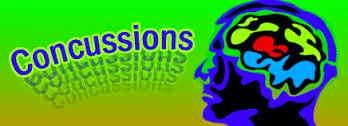Teens sensitive to light or noise after a concussion are more likely to suffer anxiety or depression, UK study finds

 Teens who are sensitive to light or noise after a concussion may also have increased emotional symptoms, such as anxiety or depression, according to a study at the University of Kentucky.
Teens who are sensitive to light or noise after a concussion may also have increased emotional symptoms, such as anxiety or depression, according to a study at the University of Kentucky.
“While most people recover from a concussion within a week, a number of factors affect their recovery, and studies have shown that teenage athletes may take up to seven to 10 days longer to recover than older athletes,” co-author Lisa M. Koehl said in a news release.
“Identifying factors that affect a teen’s experience after concussion may help in planning for the appropriate treatment and in making decisions about when to return to play and what accommodations are needed at school.”
The study followed 37 athletes, ages 12 to 17, who had persisting symptoms for an average of 37 days following a concussion. They were checked for post-concussion changes in physical, emotional and cognitive symptoms. The study determined that there were no differences in the severity of concussions in the group, and that a family history of psychiatric problems did not affect post-concussion emotional symptoms.
But it did find that teens who are sensitive to light or noise after a concussion may also be more likely to have emotional symptoms, including irritability, aggression, anxiety, depression, apathy, frequent mood changes or excessive emotional reactions.
Of the 37 athletes studied, 22 had emotional symptoms, and of this group, five (23 percent) were sensitive to light while three (14 percent) were sensitive to noise. Of the 15 athletes with no emotional symptoms, only two (13 percent) were sensitive to light and no teens were sensitive to noise, according to the release.
“Teens who had anxiety were 55 percent more likely to self-report attention difficulties than those without anxiety, while teens with irritability/aggression were 35 percent more likely to self-report problems with attention than teens without irritability,” said co-author Dan Han. “While these findings are preliminary and require a larger sample size to predict outcomes with more confidence, we are intrigued by the potential these data offer in terms of providing teens with a better treatment plan based on their unique cognitive, physical and emotional response to concussion.”
The researchers presented their findings at the American Academy of Neurology‘s Sports Concussion Conference in Chicago in July. Click here for more information about concussions.